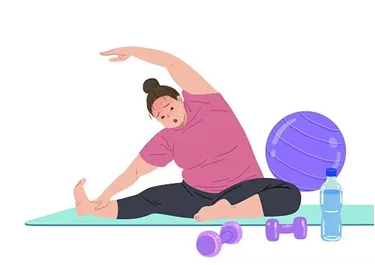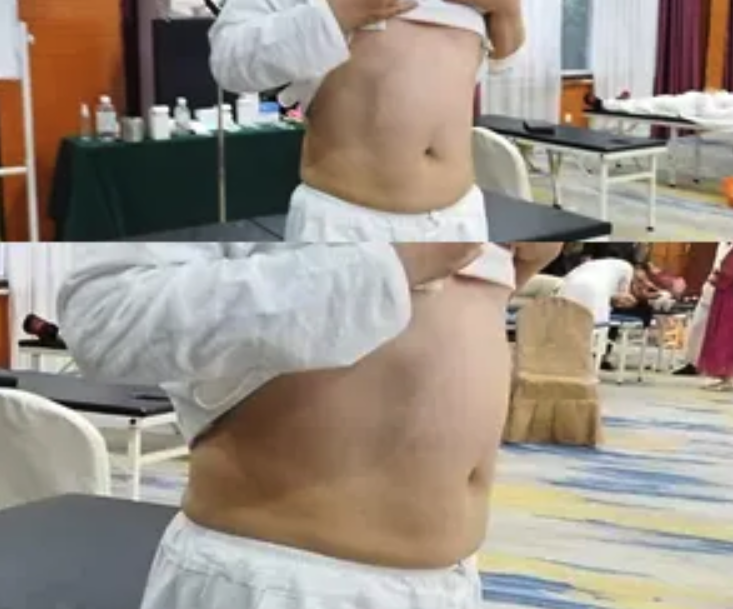Losing weight is a lifelong endeavor for many who value beauty and health, and it is also a perennial hot topic discussed by health bloggers and medical institutions on various online platforms. When it comes to the most popular weight loss drug in recent times, one cannot help but mention the so-called "miracle weight loss drug" Ozempic.
With a simple online search, one can find numerous accolades attributed to it: "The weight loss drug personally tested by Tesla CEO Elon Musk," "A single dose costs less than a thousand dollars," "Lose ten pounds in two months," and so on. Each of these claims makes the drug seem like a godsend for those looking to lose weight.

What is the weight loss mechanism of Ozempic?
Ozempic is a hypoglycemic drug that uses the human GLP-1 receptor as an agonist.
So, what is the use of activating the GLP-1 receptor?
The GLP-1 receptor can regulate glucose metabolism in the body. In an activated state, it can stimulate insulin secretion and inhibit the secretion of glucagon.
In addition, Ozempic can also delay early gastric emptying after meals, increase the feeling of fullness, and act on the hypothalamus to suppress appetite, thereby reducing food intake to achieve weight loss.
In short, injecting or taking Ozempic can achieve weight loss by reducing appetite and not feeling hungry, effectively realizing the ultimate goal of "controlling the mouth" from the source.
What kind of side effects does Ozempic have?
Although the safety of Ozempic has been clinically verified extensively, adverse reactions still exist.
The most common one is gastrointestinal side effects, with more than 40% of people experiencing nausea after using Ozempic, and nearly a quarter experiencing diarrhea, vomiting, constipation, and other adverse reactions. Problems such as stomach pain, bloating, and belching are also common side effects.
In addition, when using Ozempic for weight loss, it is important to be vigilant about potential issues such as pancreatitis, cholecystitis, and thyroid tumors.
While using Ozempic for weight loss, it is also important to be aware of the potential development of "Ozempic Face" (Ozempic Face) - periorbital hollowing, loose skin, and changes in the jawline contour, which can make one look suddenly 10 years older in just a few months.
This phenomenon is related to the loss of muscle and fat; Ozempic not only reduces fat but also muscle.
According to existing research, 25% to 40% of the weight lost with Ozempic is muscle, and it also has certain detrimental effects on bones.

On the journey of losing weight, we have been striving and constantly seeking shortcuts. From the earliest methods like fasting, enemas, senna leaves, to ketogenic diets, 18+6 or 5+2 intermittent fasting, and even to gastric reduction surgery.
Some have even resorted to using drugs for weight loss. The abuse of medication and excessive weight loss can lead to kidney necrosis, liver dysfunction, infertility, and even life-threatening situations.
So, how should one lose weight? Is there a shortcut? Should one eat more or less? Can exercise help with weight loss?
Today, Dr Zhu will address these persistent questions that have been bothering us.
The prevailing logic for weight loss is to turn excess calories into a calorie deficit, and by various methods, create a calorie deficit to shed the excess fat.
The simplest method is to eat less—reducing the generation of calories. However, not being able to eat one's fill leads to hunger, and people fear hunger the most. When hungry, one feels anxious and weak, lacking the energy to do anything.
Moreover, hunger can lead to malnutrition, which is harmful to health. The easiest method is to exercise more—increasing the consumption of calories.
But if you look at the calorie content of common foods and compare it with the calorie expenditure of common forms of exercise, you'll find that relying solely on this method for weight loss may not be reliable.
For example, a person of average build jogging at a steady pace on a treadmill for 30 minutes burns fewer calories than a can of cola contains, and eating a couple of extra mouthfuls of rice can make up for that. Thus, most weight loss methods are hard to sustain because they go against human biological instincts.

How does traditional Chinese medicine define overweight?
Traditional Chinese medicine believes that when the body's qi and blood energy is insufficient, and there is not enough energy to expel the body's internal waste, this waste accumulates in the gaps between the body's internal tissues. As the accumulation of waste gradually increases, a person slowly becomes overweight.
For example, many overweight individuals do not have a large appetite, yet they continue to gain weight. It is often heard that overweight people complain that even drinking water causes weight gain, while many thin individuals can eat a lot without gaining weight.
The weight gain or loss of these two types of people is not directly related to their appetite; those who eat less gain weight, while those who eat more do not.The reason overweight individuals gain weight is that their bodies do not have enough energy to expel the waste, and the waste that cannot be expelled causes obesity.
Due to the difference in energy levels between two people, different outcomes occur. You can observe that typically, two people of the same age, the thinner person often has better stamina than the overweight person, who tends to sit still, while the thinner person is always moving.
Another example is the obesity caused by age differences. Young people have not accumulated much waste in their bodies, and their meridians are unobstructed with higher qi and blood energy, so most of the waste can be expelled. Even with a huge appetite, they are unlikely to become overweight. As people age, their qi and blood energy continues to decline, the accumulated waste increases, and the meridians gradually become blocked, unable to expel the waste that piles up more and more, leading to gradual weight gain. Additionally, wrinkles form in areas where subcutaneous fat accumulates on the face, and some waste with pigment properties accumulates on the skin, forming spots. The older a person gets, the more waste accumulates on the body. One of the reasons young people are considered beautiful is that they intuitively give the impression of a clean feeling.
There is also an undesirable situation that depletes qi and energy systems, which is indulgence. As human beings, we have many desires, and desires can lead to unnecessary energy leakage, which is self-destructive behavior, such as staying up late, drinking at night, and partying, all of which deplete qi and blood.
So, how exactly does traditional Chinese medicine (TCM) help with weight loss?
TCM believes there are two main reasons for obesity: insufficient energy and blockages in the flow of qi (vital energy) and blood, as well as in the meridians (energy channels). Therefore, the method of weight loss first involves identifying the causes of insufficient energy and blockages in the flow of qi, blood, and meridians in the body. Once these two issues are addressed, the goal of weight loss should be achievable.
Promoting the rise of qi and energy in the body
A reasonable diet, especially a hearty breakfast, can stimulate the qi and energy in the body and increase its activity. Observations show that people who skip breakfast often have a higher probability of being obese. Moreover, those who attempt to lose weight by eating only a piece of fruit for breakfast often end up with disordered spleen and stomach functions, especially older individuals trying to lose weight.
Having enough energy to lose weight
The new perspective that "insufficient energy is the cause of obesity" has led to weight loss methods that are quite different from the well-known idea that "excess energy is the cause of obesity." In the traditional methods of exercise, dieting, and calorie control, most approaches focus on expending energy, thereby reducing the body's overall energy.
However, from this new perspective, the inability to expel waste is primarily due to insufficient energy, and these methods can actually lower energy levels, which is counterproductive. Therefore, during weight loss, one should not reduce the body's energy but rather increase it.
Healthy sleep and unblocking meridians
Going to bed early and waking up early, along with unblocking meridians, are the most effective ways to increase the body's energy. Early to bed and early to rise allow the body ample time to engage in blood production. Some friends with sleep issues continue to exercise and diet, which can be a significant drain on the body. Over time, they may feel a lack of energy, and their body may gradually become depleted.
Once there is sufficient qi and energy, the next step is to maintain the unobstructed flow of meridians, keeping the internal organs in their optimal state. Unblocking meridians (acupuncture) can improve the body's absorption of nutrients. The popular online trend of massaging the gallbladder and pericardium meridians is based on the principle of keeping the heart in its optimal state, allowing bodily fluids in the meridians to flow smoothly. This not only prevents the accumulation of new waste in the body but can also remove existing waste.
Choosing the right herbal weight loss formula
Most rapid weight loss methods involve dehydrating the waste. In many weight loss advertisements, we can see that these products promise to achieve weight loss goals in a very short time. These methods often use dehydration to quickly lose the water content in waste, and the faster the weight is lost, the quicker it tends to come back.
Dr Zhu primarily uses Chinese herbs with effects such as strengthening the spleen and replenishing qi, promoting water metabolism, and activating blood circulation to remove blood stasis. These can effectively regulate the body's water and dampness metabolism and promote the expulsion of dampness from the body, thereby achieving weight loss. At the same time, Chinese herbal weight loss requires following the principle of individual differences, as different people need different herbal formulas. Before choosing Chinese herbal weight loss, it is best to consult the advice of a professional physician.
Dr Zhu's Special Reminder: Many people believe that traditional Chinese medicine and acupuncture are reliable, effective, and have no side effects for weight loss. However, because traditional Chinese medicine emphasizes syndrome differentiation and treatment, focusing on individual constitution issues, different constitutions require different prescriptions that are appropriate for their specific conditions.
At the same time, traditional Chinese medicine is not without its toxic and side effects, so it is recommended to consult a professional TCM practitioner before taking any herbal formulas and to use medication under the guidance of a physician to avoid unintended consequences.
The acupoints chosen for acupuncture weight loss are also selected based on the patient's symptoms and manifestations, varying from person to person. The key lies in the precision and proficiency of the doctor's technique. Moreover, Dr Zhu does not advocate for starvation therapy when using acupuncture for weight loss; diet should be regular.
Many people worry that the skin will become loose after acupuncture weight loss, but this concern is unnecessary. Since fat is not lost instantly but gradually reduced, the skin will slowly contract during this process and will not sag.

Before

After
Some pictures in the article are from the Internet. If there is any infringement, please contact us to delete them.